American English, sometimes called United States English or U.S. English, is the set of varieties of the English language native to the United States. English is the most widely spoken language in the United States and in most circumstances is the de facto common language used in government, education and commerce. It is also the official language of most US states. Since the late 20th century, American English has become the most influential form of English worldwide.

The Oxford English Dictionary (OED) is the principal historical dictionary of the English language, published by Oxford University Press (OUP). It traces the historical development of the English language, providing a comprehensive resource to scholars and academic researchers, as well as describing usage in its many variations throughout the world.

The term Yankee and its contracted form Yank have several interrelated meanings, all referring to people from the United States. Their various meanings depend on the context, and may refer to New Englanders, the Northeastern United States, the Northern United States, or to people from the US in general.
Webster's Dictionary is any of the English language dictionaries edited in the early 19th century by Noah Webster (1758–1843), an American lexicographer, as well as numerous related or unrelated dictionaries that have adopted the Webster's name in his honor. "Webster's" has since become a genericized trademark in the United States for English dictionaries, and is widely used in dictionary titles.

Anti-Americanism is a term that can describe several sentiments and positions including opposition to, fear of, distrust of, prejudice against or hatred toward the United States, its government, its foreign policy, or Americans in general.
Gook is a derogatory term for people of East and Southeast Asian descent. Its origin is unclear, but it may have originated among U.S. Marines during the Philippine–American War (1899–1902). Historically, U.S. military personnel used the word “to refer to any dark-skinned foreigner, especially a non-European or non-American.” The earliest published example is dated 1920 and notes that U.S. Marines then in Haiti used the term to refer to Haitians. It was widely used in Asia in both the Korean and Vietnamese Wars.

Americentrism, also known as American-centrism or US-centrism, is a tendency to assume the culture of the United States is more important than those of other countries or to judge foreign cultures based on American cultural standards. It refers to the practice of viewing the world from an overly US-focused perspective, with an implied belief, either consciously or subconsciously, in the preeminence of American culture.

The Shorter Oxford English Dictionary (SOED) is an English language dictionary published by the Oxford University Press. The SOED is a two-volume abridgement of the twenty-volume Oxford English Dictionary (OED).
A Dictionary of American English on Historical Principles (DAE) is a dictionary of terms appearing in English in the United States that was published in four volumes from 1938 to 1944 by the University of Chicago Press. Intended to pick up where the Oxford English Dictionary left off, it covers American English words and phrases in use from the first English settlements up to the start of the 20th century.
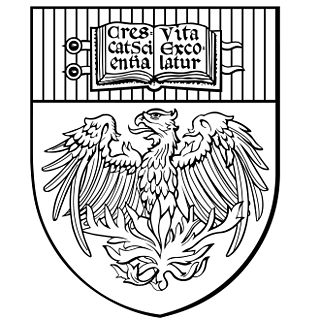
The University of Chicago Press is the largest and one of the oldest university presses in the United States. It is operated by the University of Chicago and publishes a wide range of academic titles, including The Chicago Manual of Style, numerous academic journals, and advanced monographs in the academic fields.
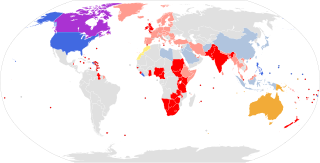
Despite the various English dialects spoken from country to country and within different regions of the same country, there are only slight regional variations in English orthography, the two most notable variations being British and American spelling. Many of the differences between American and British/Commonwealth English date back to a time before spelling standards were developed. For instance, some spellings seen as "American" today were once commonly used in Britain, and some spellings seen as "British" were once commonly used in the United States.

Richard Theodore Ely was an American economist, author, and leader of the Progressive movement who called for more government intervention to reform what they perceived as the injustices of capitalism, especially regarding factory conditions, compulsory education, child labor, and labor unions.
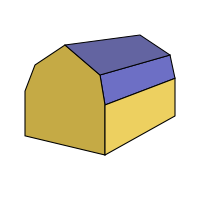
A gambrel or gambrel roof is a usually symmetrical two-sided roof with two slopes on each side. The upper slope is positioned at a shallow angle, while the lower slope is steep. This design provides the advantages of a sloped roof while maximizing headroom inside the building's upper level and shortening what would otherwise be a tall roof. The name comes from the Medieval Latin word gamba, meaning horse's hock or leg. The term gambrel is of American origin, the older, European name being a curb roof.

Buck passing, or passing the buck, or sometimes (playing) the blame game, is the act of attributing to another person or group one's own responsibility. It is often used to refer to a strategy in power politics whereby a state tries to get another state to deter or fight an aggressor state while it remains on the sidelines.

Ernest DeWitt Burton was an American biblical scholar and president of the University of Chicago.
A Dictionary of Canadianisms on Historical Principles (DCHP) is a historical usage dictionary of words, expressions, or meanings which are native to Canada or which are distinctively characteristic of Canadian English though not necessarily exclusive to Canada. The first edition was published by W. J. Gage Limited in 1967. The text of this first edition was scanned and released as a free-access online dictionary in 2013.
Kinnikinnick is a Native American and First Nations herbal smoking mixture, made from a traditional combination of leaves or barks. Recipes for the mixture vary, as do the uses, from social, to spiritual to medicinal.

Americanism, also referred to as American patriotism, is a set of nationalist values which aim to create a collective American identity for the United States that can be defined as "an articulation of the nation's rightful place in the world, a set of traditions, a political language, and a cultural style imbued with political meaning". According to the American Legion, a U.S. veterans' organization, Americanism is an ideology, or a belief in devotion, loyalty, or allegiance to the United States of America, or respect for its flag, its traditions, its customs, its culture, its symbols, its institutions, or its form of government. In the words of Theodore Roosevelt, "Americanism is a question of spirit, conviction, and purpose, not of creed or birthplace."
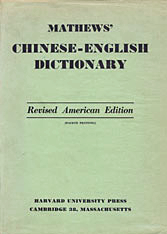
A Chinese–English Dictionary: Compiled for the China Inland Mission by R. H. Mathews or Mathews' Chinese–English Dictionary, edited by the Australian Congregationalist missionary Robert Henry Mathews (1877–1970), was the standard Chinese–English dictionary for decades. Mathews originally intended his dictionary to be a revision of Frederick W. Baller's out-of-print An Analytical Chinese–English Dictionary, but ended up compiling a new dictionary. Mathews copied, without acknowledgment, from the two editions of Herbert Giles's A Chinese–English Dictionary.
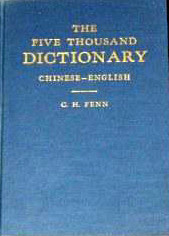
The Five Thousand Dictionary: A Chinese-English Dictionary... (1926) or Fenn's Chinese-English Pocket-Dictionary (1942), which was compiled by American missionary Courtenay H. Fenn, is a widely reprinted learners' dictionary that selected Chinese character entries on the basis of common usage. It was the first Chinese-English dictionary to indicate the neutral tone associated with weak syllables.














